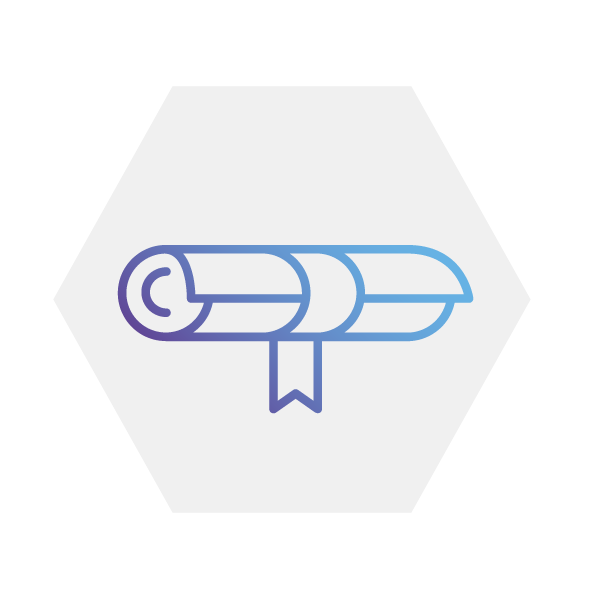Digital Factory: No- & Low Code Developer
This training course provides a basic understanding of data and databases. You will get a first overview of different platforms and tools with which you can create data applications with little programming effort.
Learning objectives:
- Data protection and data security
- Introduction to the world of data and databases
- How databases interact
- Basic rules of data management, data maintenance and cleaning
- Data generation and capture
- Evaluation of mass data
- Function of MS SQL databases and their application
- In-depth knowledge of how to use data tools
- Selection and analysis of data
- Visualization of data
- Basic understanding of various systems and tools (Power BI, Mendix, KNIME, Microstrategy etc.)
- Creating VBA scripts and dashboards

Contents
Data protection and data security (2 x half a day)
- Introduction
- Overview of GDPR: scope, roles
- Principles for data processing
- Legality of processing
- Duty to supply information
- Rights of data subjects
- Reporting obligations
- Management systems and standards
- Basic principles of information security
- Introduction and organization of data security in the company
Introduction to databases and database management (4 days)
- Introduction and role of the database
- Database types
- Database software (DB-Beaver, PHP-Admin, SQL-Developer, MS SQL Workbench)
- Query languages (joins, data types, calculations and analyses)
- Software architecture
- Building simple database structures
- ER diagrams
- PK/FK
- Auto-increment
- Spot the error (finding and solving DB problems, frontend applications, upgrading databases)
- ER diagrams
- Organizing databases (roles & rights), staging, views
Q & A Session (1 day - of which 1.5h with trainer, remaining day time for questions, self-study and social learning)
Database software (3 days)
- Indexing
- Tablespaces
- Procedures
- Triggers
- Extensions
- JSON
- Web projects
- Staging – database migration
- Databases performance: query plans, performance optimization
- NoSQL: differences between documents & pages, typing, software, advantages and disadvantages, setup of databases, queries according to CRUD
- Business intelligence: data warehouses, data marts
- Big Data databases: scaling, problems of larger data sets, NoSQL vs. SQL
Q & A Session (1 day - of which 1.5h with trainer, remaining day time for questions, self-study and social learning)
Introduction to software development (4 days)
- What is software?
- Software languages
- Roles and requirements
- Interface management
- Planning game software
- Software lifecycle
- Quality Management
Q & A Session (1 day - of which 1.5h with trainer, remaining day time for questions, self-study and social learning)
PowerBI (3 days)
- Special features when using different data sources (import, query, live data, SharePoint, Azure)
- Setting up gateways
- Advanced methods for cleaning, transforming and loading data (query editors, UNION and JOINs, data profiling)
- Special features when designing a data model
- In-depth use of DAX
- Optimizing model performance
- Creating complex reports
- Using dashboards
- Creating paginated reports
- Real-time reports and dashboards
- Use of the common data model
- Management of data records
Mendix (4 days)
- Finding your way around
- RAD 101
- Go Make IT (Building with Studio and Studio Pro)
- CLAP starter template
Introduction to RPA with UIPath (2 days)
- Basics and potential of UI Path
- Use Cases with Excel/Access and Windows program
- Databases and web Applications
Basics of different tools, e.g. KNIME and Microstrategy (1 day)
- Getting started
- Data reading and generation
- Column operations/Row operations
- Modifications
- Pivot

Target audience
- You have completed vocational training or a university/technical college degree.
- You have an affinity for data, tasks and digital tools (programming knowledge is not required).
- We recommend this course especially if you will be working with the preparation of databases in your current job or in the future.

Entry requirements
- A laptop is required for this training. Please let us know if you would like to take advantage of a CITT loaner for the duration of the training.
- The software and tools used will be made available via virtual machines during the training

Duration
26 training days (including 22 full training days plus 3 Q&A sessions with time for exercises, questions to the trainer and time for self-study and social learning)

Process
- Virtual training

Pricing
3288,30 €
This qualification is according to §82 SGB III Qualification Opportunities Act eligible for funding through the Federal Employment Agency.
Funding via education voucher:
- Training course cost subsidy up to 30%
- Wage subsidy up to 30%
- Funding levels are coordinated individually with the Federal Employment Agency
Requirements for funding:
- Highest educational qualification at least 2 years ago
- No use of subsidized qualification via the Federal Employment Agency in the last 2 years

Diploma
CITT certificate

Appointments
The next course starts will be announced soon.

Language
German
Are you interested?
Then take your chance and register now!